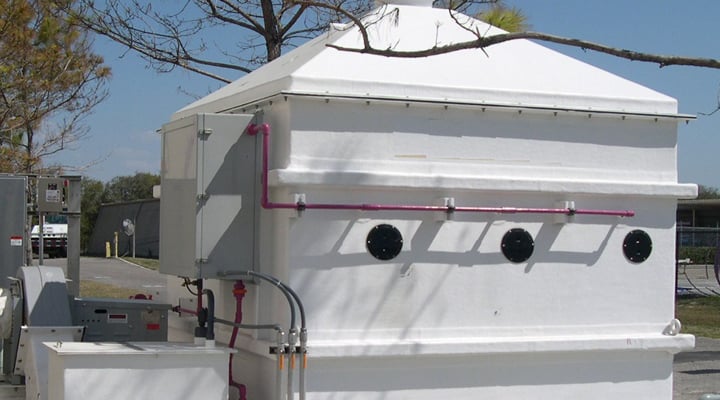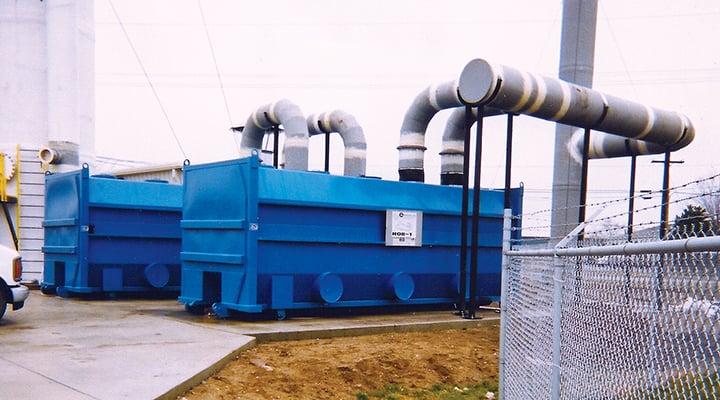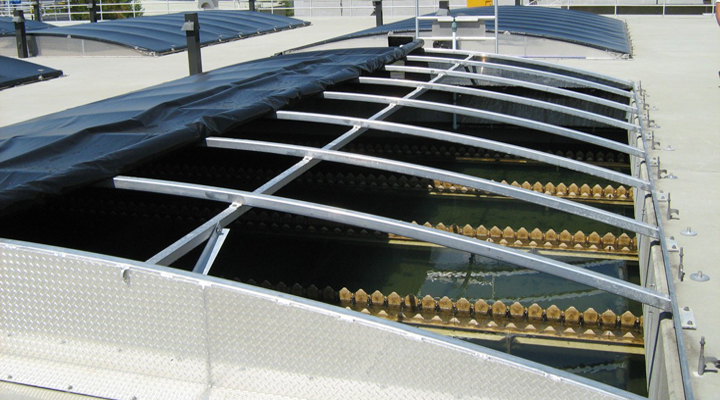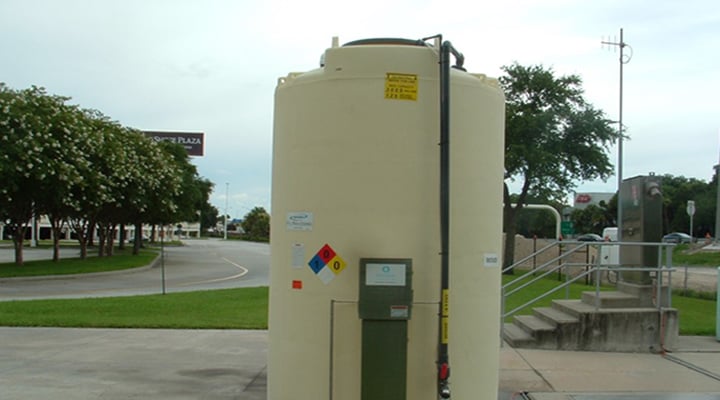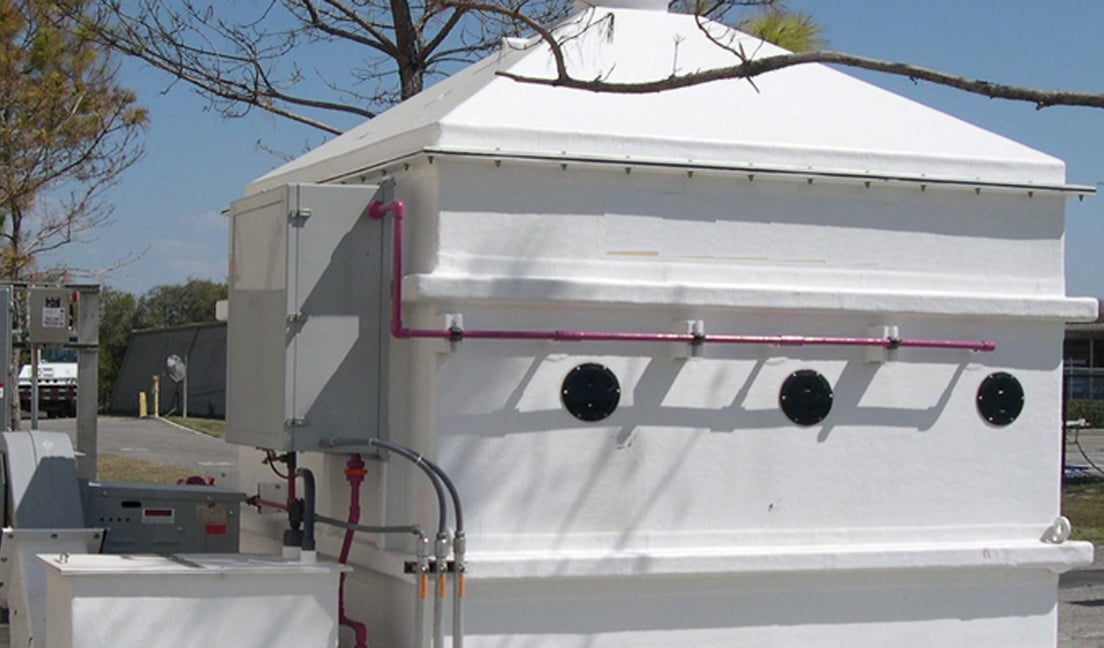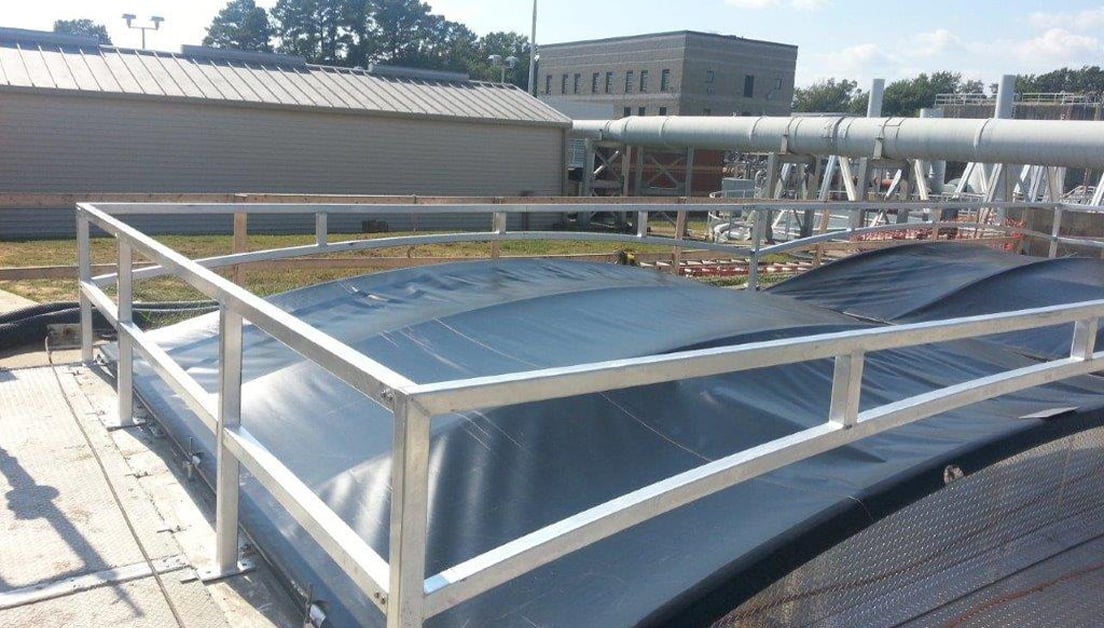Wastewater odor is a nuisance and in many cases can cause corrosion to wastewater infrastructure, sewer systems, valves, metal structures and electrical components. Depending on the odorous compounds involved, there can also be a danger to public health.
Evoqua provides a broad range of solutions for effective wastewater odor control including biological, chemical, and activated carbon scrubbers, as well as liquid phase solutions for both sewer networks and in-plant odor and corrosion control.
Our award-winning Water One® service program combines remote monitoring and data intelligence to provide proactive, predictive service for more efficient operation and more effective odor and corrosion control.
Wastewater can have a variety of odors that range from being a nuisance to being toxic, each scent is caused by the breakdown of organic compounds
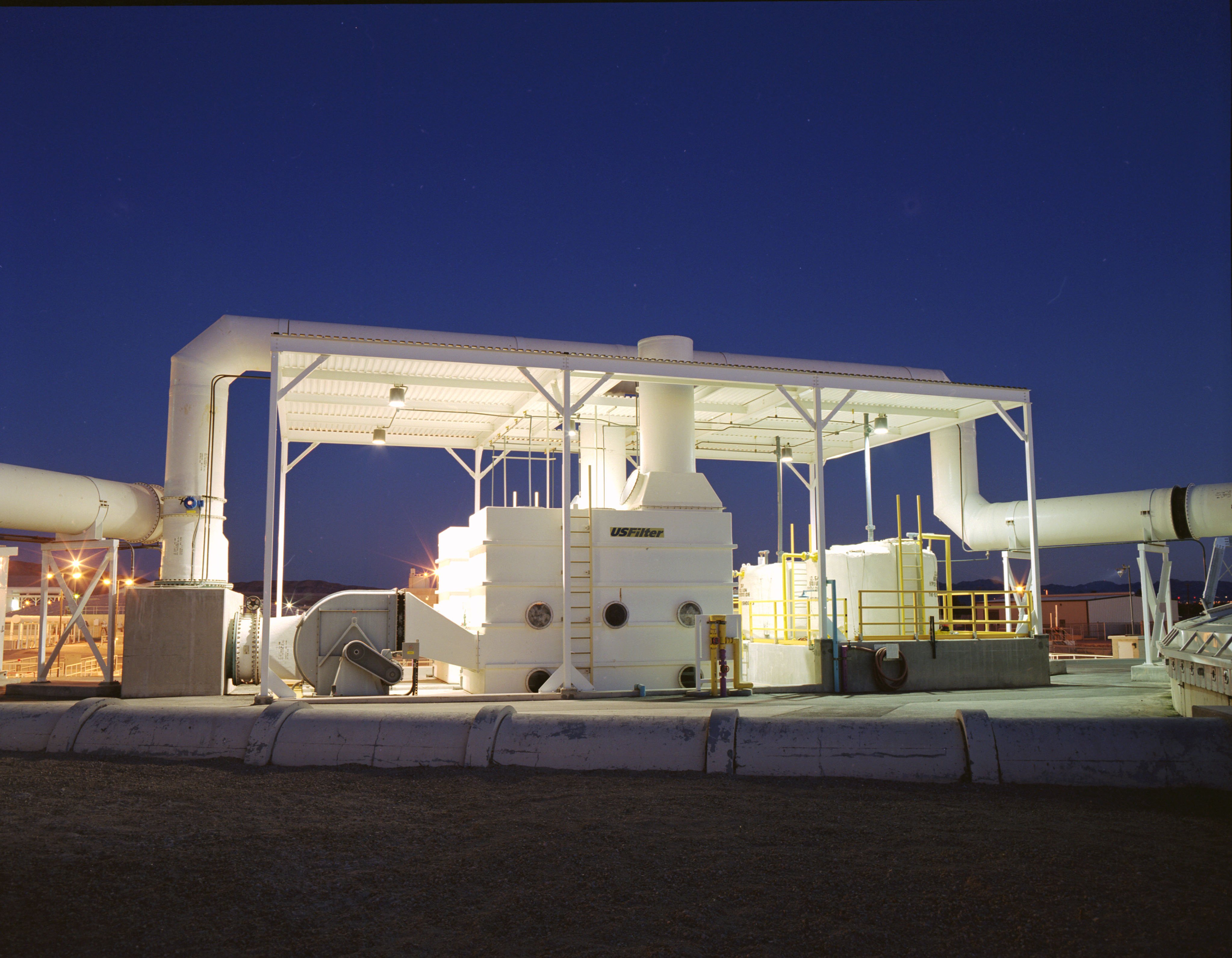
What causes odor in wastewater?
Odors originate as the organics in the wastewater breakdown, releasing a range of compounds with unpleasant smells that can be described as rotten eggs, decaying vegetation, ammonia and more. The chart below provides details of the most common odorants found in wastewater.
While organic and amine odors can be a nuisance, the primary wastewater odor of concern is hydrogen sulfide gas (H2S). Concentrations of H2S as low as 0.0005 ppm can trigger odor complaints from the surrounding community and in higher concentrations can cause significant corrosion or even be toxic.
| Substance | Characteristic |
|---|---|
| Allyl Mercaptan | Strong garlic, coffee |
| Amines | Fishy |
| Ammonia | Ammoniacal |
| Amyl Mercaptan | Unpleasant, putrid |
| Benzyl Mercaptan | Unpleasant, strong |
| Crotyl Mercaptan | Skunk |
| Diamines (cadaverine) | Decayed flesh |
| Dimethyl Sulfide | Decayed vegetables |
| Ethyl Mercaptan | Decayed cabbage |
| Hydrogen Sulfide | Rotten Eggs |
| Methyl Mercaptan | Decayed cabbage |
| Propyl Mercaptan | Unpleasant |
| Skatole | Fecal |
| Sulfur Dioxide | Pungent, irritating |
| Tert-Butyl Mercaptan | Skunk |
| Thiocresol | Skunk, rancid |
| Thiophenol | Putrid, garlic |
Our Solutions to Wastewater Odors
The good news is that all of these wastewater odors can be controlled with the right treatment solution. Evoqua offers a wide range of equipment and services to effectively control odors in your wastewater system. As a result, you can eliminate odor complaints, reduce corrosion and protect public health.
Liquid Phase Odor Control
A liquid phase dosing program can be used to prevent odorous compounds from forming in wastewater. Chemicals, such as Bioxide® Solution are added directly into the wastewater stream along the wastewater pipeline. The dosing can be monitored remotely and adjusted automatically throughout the day relative to flow rates.
Air Scrubber Systems
Air scrubbers can be placed at lift stations, headworks or in enclosed areas to control odor in the air. They use biofiltration technology, which consists of contained media that is sprayed with water to affect biological growth. This process inhibits foul or harmful vapors from escaping into the atmosphere.
Carbon Based Odor Control
Application-specific carbon can be utilized in either municipal or industrial applications to mitigate noxious or even harmful odors. Using simple roll-on containers, or complex housings, carbon beds are an effective treatment for many vapor- and odor-related issues.
Tank and Lagoon Covers
Open-air wastewater treatment can benefit from tank and lagoon covers. Not only are the wastewater odors contained but certain applications open the possibility of capturing biogas for energy reuse.
